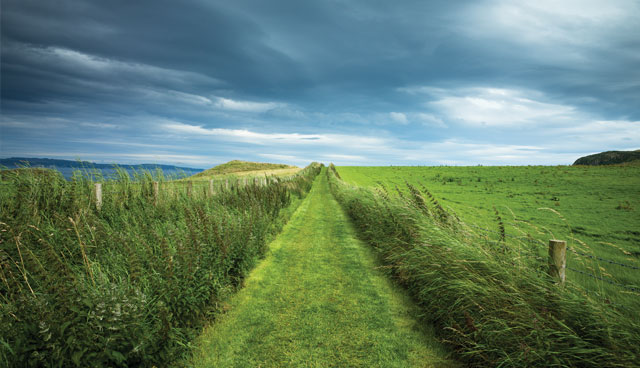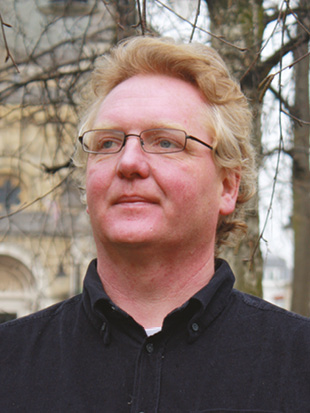Community engagement

Speaking at the Northern Ireland Planning Conference, Friends of the Earth Director James Orr explores effective community engagement for successful projects.
 Opening his presentation, Orr emphasises the legislative context within which Friends of the Earth Northern Ireland operates. “The Aarhus Convention is multilateral environmental agreement and these are non-negotiable rights. The wider context is that the environmental condition of our planet is the defining issue for our generation. Infinite growth in a finite world is simply ludicrous. We need to think about working in stewardship with the natural world and with each other. From a FOTE perspective, we are as much interested in people as we are the planet because if it’s good enough for the people then it’s good enough for the planet as well”, explains Orr.
Opening his presentation, Orr emphasises the legislative context within which Friends of the Earth Northern Ireland operates. “The Aarhus Convention is multilateral environmental agreement and these are non-negotiable rights. The wider context is that the environmental condition of our planet is the defining issue for our generation. Infinite growth in a finite world is simply ludicrous. We need to think about working in stewardship with the natural world and with each other. From a FOTE perspective, we are as much interested in people as we are the planet because if it’s good enough for the people then it’s good enough for the planet as well”, explains Orr.
There are three pillars contained within the Aarhus Convention. Citizens have a right to access environmental information, a right to participate in decision making and a right to justice or to seek judicial recourse when decisions fail to adhere to environmental law.
“We’re delighted that we have the Aarhus Convention and I know that the Aarhus Compliance Committee is getting interested in Northern Ireland. They are increasingly active and are also looking at issues such as the need for third-party rights of appeal,” says Orr.
Today, the key challenge for Friends of the Earth and planners alike, he suggests, is to determine what ‘the public interest’ is. Outlining that Northern Ireland is mirroring a situation occurring all over the planet, Orr makes several observations.
“Almost 100 years ago, Northern Ireland was defined by its heavy industry. We knew what we were and Belfast knew what it was. Now we’re defined environmentally as the place that has the largest illegal dump in the whole of Europe on the Mobuoy Road in Derry. We are defined as the place that has the largest illegal mine: Lough Neagh, where 1.7 million tonnes of sand are unlawfully extracted from a special protection area, without the benefit of planning permission, Habitats Regulations Assessment (HRA) or Environmental Impact Assessment (EIA). We are also becoming an epicentre in Europe for intensive agriculture. We believe that this is because of a systemic and institutionalised failure to grasp the environmental governance agenda,” he asserts.
However, the single greatest environmental issue that Orr identifies is the retreat of nature and biodiversity. Referencing fisheries scientist Daniel Pauly’s shifting baseline syndrome which masks decline in ecosystems as each generation redefines what is ‘natural’.
“We have lost so much. We have lost the concept of abundance, of richness, of being able to drink from our waterways. Those concepts are now completely abandoned,” states Orr.
“In terms of what we term as ecocide, we need to look to our poets and authors who describe things like ‘storiless landscapes’ and the crassness with which we have dealt with the natural world. This is a very recent phenomenon which has accelerated in the last 20 years.”
Planning, the Friends of the Earth Director maintains, needs to reassert itself. “Has it become merely a traffic light system for the regulation of land-use? I regularly talk to planning students and I tell them that what they do is more important than law or medicine because they are multi-disciplinary. No other public discipline is embedded in democratic principles and also has the ability to look to the future.
“Planning needs to rethink its possibilities in order to discover the power of planning which ignited the imaginations of John Ruskin, William Morris and Ebenezer Howard, in order to drive an agenda for the future which looks at what sustainability is.”
What Friends of the Earth does
Arguing that there is an inherent regulatory failure in relation to the environment, Friends of the Earth have four main approaches which incorporate: education; agitation; litigation; and confrontation.
“We spend a lot of time looking at issues such as the Habitats Directive Article 6.3, the Environmental Impact Assessment and public participation. We share people’s experiences of the planning system and from these draw some lessons in order to develop a cohesive network, or campaigning ecosystem, around planning in Northern Ireland in which there is a lot of peer-to-peer support and mutual recognition,” he explains.
“In terms of trying to drive a sustainability agenda, we have moved into a role of litigation, including targeted litigation, and disruptive campaigning. Occasionally, it falls into disobedience and that is where we don’t want to be.”
“Communities do not have a right to stop everything, but where you get really good, healthy and positive participation and people understand what the public interest is, then you get better decisions. We also want to look at the rights of nature. Our current jurisprudence is simply inadequate, it’s based on property law rather than on the intrinsic rights of nature for a river not to be dammed or a mountain decapitated,” Orr details.
The Friends of the Earth Director highlights the civil disobedience which has become a feature of recent environmental campaigns, including the community opposition to exploratory drilling in Woodburn Forest. Suggesting that this may become more prevalent in the future, he identifies regulatory breakdown as being the cause of this community conflict.
“There has been failure to understand that you need a Strategic Environmental Assessment (SEA), an adequate EIA and a Habitats Regulations Assessment that is accurate, robust and compliant with the law. We had a situation at Curraghinalt near Gortin where there was a goldmine approved 23 metres from a Special Areas of Conservation (SAC) river, the Owenkillew, without an environmental impact assessment.
“What occurs when there is a regulatory breakdown is community conflict. This is difficult to manage and extremely challenging for planning officers. In terms of responsibility, no one wants to be there and none of the people involved in the disputes want to be there, but these have been created by regulatory failures.”
“Communities do not have a right to stop everything, but where you get really good, healthy and positive participation and people understand what the public interest is, then you get better decisions.”
However, Orr concedes that when it comes to the environment, the courts are not the venue to deal with planning matters. “In my opinion, the courts fail in two ways. Firstly, they don’t understand the unique and dynamic nature of ecosystems and they can’t because they are trained in law. Secondly, environmental law is incredibly complex and it is very easy to interpret it in a way that is actually against the purpose of its intended interpretation.”
Instead, he argues that an environmental court of tribunal should be established in Northern Ireland so that third-part rights of appeal can be managed in a way that gives communities and individuals the same rights as developers. “It is simply not fair that a developer can appeal, but an objector cannot. We also need an environmental audit committee in the Assembly in Northern Ireland. This is fairly basic and there is one in Westminster. Had we had one then RHI and other controversial financial schemes in Northern Ireland may have been avoided.
“This is the only part of these islands without an independent environmental protection agency. There is an opportunity now with Brexit and the loss of the European Commission to consider new governance arrangements for Northern Ireland. But it must be outside of government because of the political pressure that is on the Chief Executive of the Northern Ireland Environmental Agency in DAERA and the subsuming of the environment within DAERA and elsewhere in government.”
Bringing his presentation to a conclusion, Orr summarises: “I think the next step for all of us within the environmental community is to recognise that with climate change, the decline of nature, the loss of abundance, the loss of connection with our neighbours, whether our species or not; we really need to transform environmental jurisprudence away from property law to new law which gives people and nature intrinsic rights. The Aarhus Convention is a step in the right direction, but having been through a lot of litigation recently and having seen a lot of community conflict, we really need to redefine our relationship with communities, creating cultures of encounter and creating a very different planning system for the future.”






